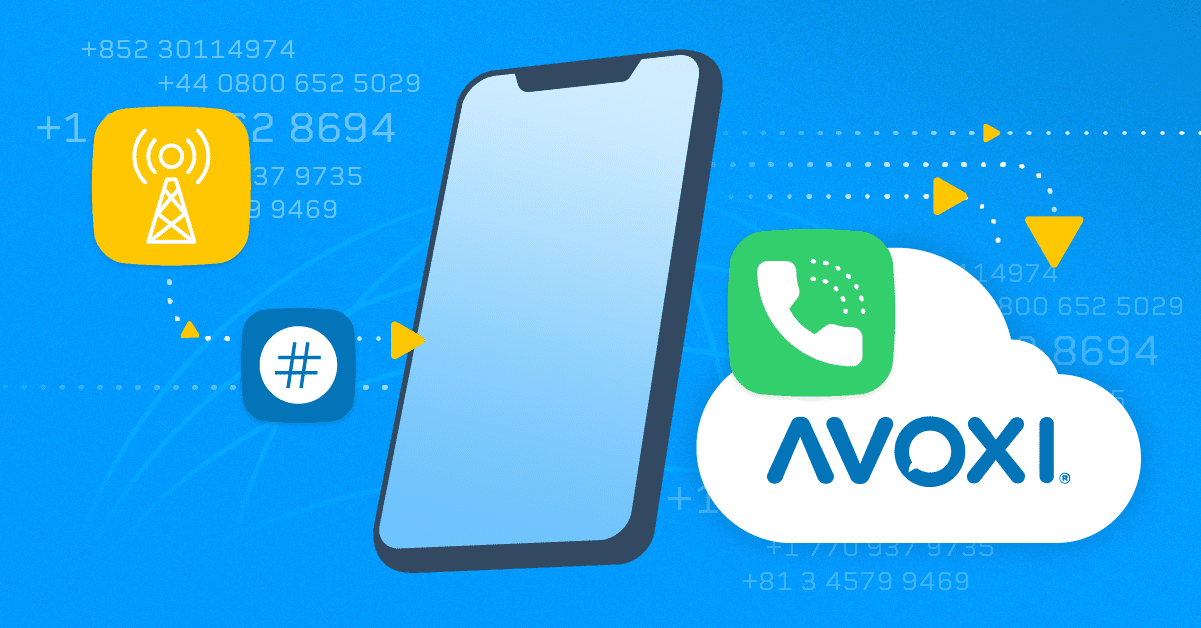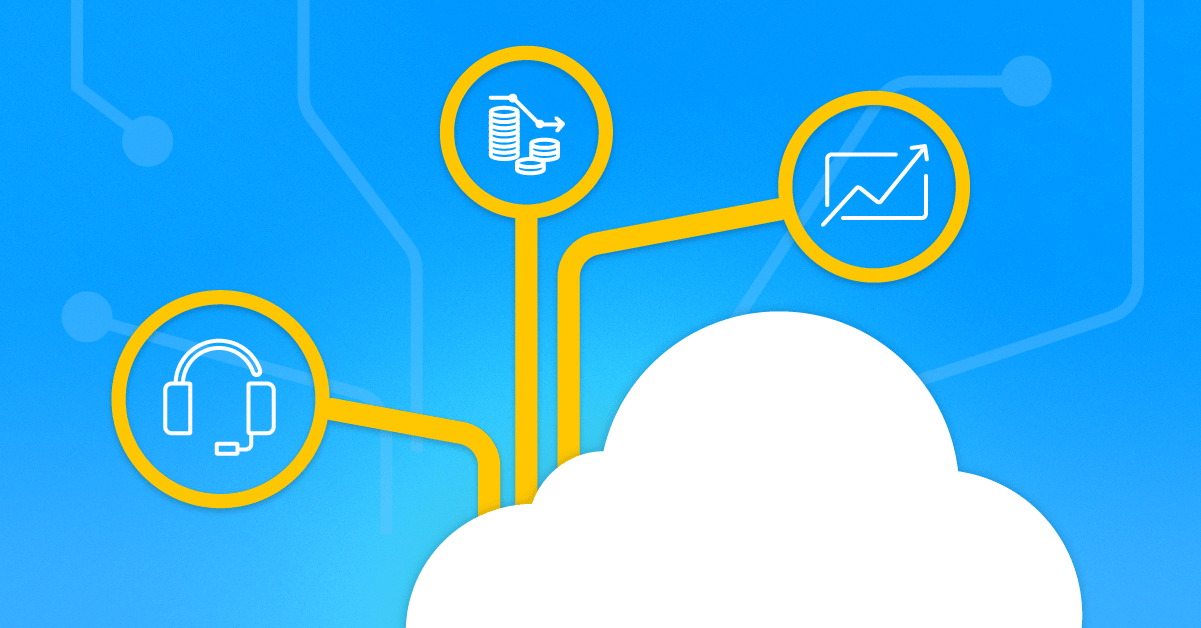PBX
PBX
A PBX (Private Branch Exchange) system is indispensable in business telecommunications. But what is a PBX?
What is a PBX?
PBX is a private telephone network used within a company or organization that allows for internal and external communication across various channels. This system makes seamless connectivity within businesses possible, serving as the foundation for efficient communication.
The Vital Role of PBX in Modern Business
A PBX system is more than just a network of phones. It encompasses a variety of communication forms, including voice, video calls, and text messaging, all routed through this centralized system.
When we talk about what is a PBX phone or what is a PBX telephone system, we're referring to devices that can handle multiple lines, transfer calls, host conference calls, and much more, all enabled by the PBX system they're connected to.
Understanding what is a PBX used for helps businesses recognize its value in streamlining both internal and external communications, ensuring that every call is managed efficiently.
Diving Deeper into PBX Functionality
What is a PBX system used for? Beyond facilitating internal communication among staff, it also manages incoming calls, directing them to the appropriate department or individual. This ensures that external communication is streamlined and efficient, giving businesses a professional image.
The system can include features like voicemail, call recording, IVRs (Interactive Voice Responses), and call queues, significantly enhancing how businesses interact with their clients and within their teams.
PBX systems have evolved from traditional hardware-based setups to digital and now VoIP (Voice over Internet Protocol) systems, each iteration bringing new features and improvements. This evolution underscores the importance of PBX systems in maintaining and enhancing modern businesses' communication landscape.
Understanding what a PBX is and its role in telecommunications is crucial for any business looking to improve its communication infrastructure. With its ability to support a wide range of communication needs, a PBX system is a critical player in the success and efficiency of businesses worldwide.
PBX Devices and Systems: The Components That Power Communication
In the intricate world of PBX (Private Branch Exchange) systems, understanding the components that facilitate seamless communication is key. These systems comprise several critical devices, each serving a unique function to ensure efficient operation.
Let’s explore these key components: PBX lines, switches, servers, and trunks and their role in the PBX ecosystem.
What is a PBX Box: The Heart of the System
At the core of any PBX system lies the PBX box, which might be a physical piece of hardware or a virtual server, depending on the system's architecture. This box or server is the brain behind the operation, managing calls, voicemails, and routing information across the network. It connects all internal telephones within an organization and liaises with the public switched telephone network (PSTN).
PBX Lines: Connecting the Dots
When we talk about what is a PBX line, we refer to the connections that link the PBX system with the external world. These lines facilitate outbound and inbound communication, allowing employees to make external phone calls and customers to connect with the company. Depending on the size and needs of the business, multiple PBX lines can be employed to handle varying call volumes.
The PBX Server: The Central Hub
Central to the PBX setup is the PBX server, the device or software that processes calls and manages the routing of those calls within the network. Whether physical or cloud-based, the server's functionality is vital for the PBX system's overall performance, acting as the network's central hub.
PBX Switches and Switchboards: Streamlining Connections
PBX switches play a pivotal role in the system. What is a PBX switch? It's a device that routes calls between the system's endpoints, ensuring that each call finds the most efficient path to its destination, an internal extension or an external line.
Meanwhile, if you want to know what is a PBX switchboard, it refers back to manual systems but now to the digital interfaces that perform similar call management and routing functions in a modern context.
PBX Trunks: The Backbone of Multiple Calls
Lastly, PBX trunks are bundled lines that connect the PBX system to the telephone network, allowing for numerous simultaneous calls to be made and received. Trunking is essential for businesses with high call volumes, providing the capacity needed for efficient communication.
Each PBX device, from servers to switches, plays a crucial role in the system's operation, highlighting what is a PBX phone used for — facilitating advanced call handling features such as conferencing, transferring, and queue management that go beyond basic telephony.
PBX Types and Utilities: Tailoring Communication to Business Needs
Private Branch Exchange (PBX) systems have evolved significantly, adapting to the changing communication needs of businesses. Today, there are several types of PBX systems, each offering unique benefits and suited for different applications. Let's explore these variations and understand their utilities.
Traditional PBX Systems: The Foundation
Traditional, or analog, PBX systems are the original form of PBX technology. These systems use physical wiring and switchboards to connect calls within and outside a business.
While more modern solutions have mainly overtaken them, they laid the groundwork for business telecommunications, offering basic call handling features like call transfer, hold, and pickup.
Hosted PBX: Flexibility and Scalability
A significant evolution in PBX technology is the hosted PBX system. This is a service where the PBX system is hosted and managed by a third-party provider off-site rather than on the business premises. This model offers businesses flexibility, eliminating the need for physical hardware onsite and reducing maintenance and setup costs.
Benefits of Hosted PBX Systems
- Scalability: Easily add or remove lines and features as your business needs change.
- Cost-Efficiency: Lower upfront costs and reduced maintenance expenses.
- Accessibility: Employees can access the phone system remotely, supporting modern work-from-home arrangements.
VoIP PBX Systems: The Integration of Internet
The advent of VoIP (Voice over Internet Protocol) technology has given rise to VoIP PBX systems, which use the Internet to transmit call data. This allows for more advanced features, such as video calls, instant messaging, and mobile app integration, on top of the traditional voice calling capabilities.
What is a PBX Phone System Used For in VoIP?
VoIP PBX systems are utilized for a broad spectrum of communication needs, providing businesses with a unified communication platform that supports voice, video, and text-based interactions both internally and with external parties.
Hybrid PBX Systems: Best of Both Worlds
Hybrid PBX systems combine elements of traditional and VoIP PBX systems, allowing businesses to use both analog and internet-based calling. This type is beneficial for companies transitioning from traditional to VoIP systems or those requiring the reliability of analog lines alongside the features of VoIP.
Practical Applications Across Industries
PBX systems mainly hosted and VoIP varieties, have found applications across numerous sectors. From enabling call centers to manage high volumes of customer interactions efficiently to facilitating seamless communication in healthcare for appointment scheduling and patient inquiries, the utilities of PBX systems are vast and varied.
The landscape of PBX systems offers a range of types to suit different business needs, from traditional setups to advanced hosted and VoIP solutions. Understanding what each type entails and their specific utilities allows businesses to select the most appropriate PBX system, ensuring effective and efficient communication capabilities tailored to their operational requirements.
Elevating Business Communications with AVOXI
When selecting a PBX provider that delivers both quality, reliability, and customization, AVOXI stands out as a frontrunner in the telecommunications industry.
Offering a comprehensive suite of VoIP PBX solutions, AVOXI has solidified its position as a leading provider, especially for businesses seeking to enhance their communication infrastructure with advanced technology.
Experience superior communication services and transform your telecommunication strategy with AVOXI. Discover AVOXI's solutions and take the first step towards transforming your business communications.
Additional Resources

PSTN Replacement
Guide to Voice Termination Services

Retain Phone Number
International
Number Porting

Virtual Phone Line
Benefits of
SIP Trunking
Interested in Learning More?
AVOXI is the cloud communication platform of choice for enterprises and companies with international markets. The road to modernized communications has never been easier, learn what AVOXI can do for you today.